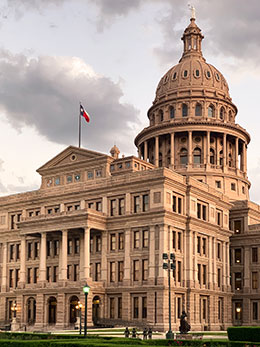- News
- Horse Racing
- Racing Preview
- AQHA Racing Challenge
- Breeding
- Sales
- Quick Stakes Results
- Detail Race Results
- Qualifiers
- Leader Board
- Leading Sires
- Videos
- Auction Leaders
- Q-Racing
Streaming Video
© iStock

by Ray Paulick
Saturday's Houston Racing Festival program at Sam Houston Race Park in Texas will have 10 races, including five stakes, led by the Grade 3 duo of the John B. Connally Turf Cup and the Houston Ladies Classic Stakes. Purses will total nearly $1 million.
Total wagering will be nowhere near that amount, thanks to the actions of the Texas Racing Commission, which shut down Thoroughbred racing's export simulcast signals from state tracks over a standoff with the Horseracing Integrity and Safety Authority.
With no simulcast wagering on its races, Sam Houston has had to rely on meager on-track betting and wagering at a handful of tracks around the state.
Last Sunday, total wagering on eight races was $116,342. Purses totaled $150,000, with much of that coming courtesy of 2019 legislation that earmarked a portion of sales taxes from horse products sold throughout the state to go toward purses. An estimated $25 million – to be divided equally between Thoroughbred and Quarter Horse racing – is raised annually for purse money through the sales tax.
With no simulcasting to other U.S. states, wagering on Sam Houston's product is down more than 90 percent this meet, according to reports. It's a massive understatement to say that this is not a sustainable model.
Worse yet, Texas horse racing interests could get stampeded by the army of gambling lobbyists who have descended upon the capitol in Austin for the 2023 legislative session.
According to published reports, there are more than 300 registered lobbyists representing gambling interests, with 72 reportedly hired by Las Vegas Sands casino company alone. Gambling companies aren't just spending money on lobbyists. They are donating millions to the campaign coffers of state politicians in hopes of getting their support for gambling legislation – both casinos and online sports wagering – that, if passed, would then go on the November ballot as a constitutional amendment for Texans to decide upon. That's the same path horse racing took 35 years ago when voters approved a 1987 ballot initiative to allow pari-mutuel wagering.
Texas does not have off-track betting and there are only a handful of tracks in this massive state that offer wagering on horse racing. It does not permit advance-deposit wagering – at least the legal variety. The Texas Racing Commission also shot down historical horse racing machines as a means to produce additional revenue for tracks and purses.
Rick Perry, who served as Texas governor for 15 years, is the spokesperson for the Sports Betting Alliance that is seeking online sports wagering. Perry has been pushing the theory that Texans are already gambling billions of dollars a year on sports, but doing so illegally through unregulated offshore businesses or bookmakers. Most of the state's professional sports franchises support the legislation.
There is movement among the state's most powerful politicians. House Speaker Dade Phelan has expressed support for destination casinos in major cities. Phelan reportedly received $300,000 from the political action committee formed by Sands casino.
That's peanuts compared to the donations from Sands to Lt. Gov. Dan Patrick and his political action committee. Patrick reportedly has received $2.5 million from the Sands PAC in recent years. Patrick, as the presiding officer of the Texas Senate, can control what legislation gets to the floor for a vote. He has not come out in support of either sports wagering or casino legislation – yet.
Despite the wallpapering of money in the capitol, there's a long road ahead for Texas gambling proponents. Just as in 1987 with the pari-mutuel referendum, the Senate and House have to pass any measure by a two-thirds supermajority vote. And then voters will have the final say.
Where does this leave horse racing?
It could be left in the dust, as there will be a lot more competition for the gambling dollar, for sure, if both sports betting and destination casinos are legalized. However, it is possible during negotiations over legislative language that racetracks will be thrown a bone and allowed to have a limited number of slot machines. And it seems unfathomable that online sports wagering would be approved without also legalizing advance deposit wagering on horse racing. So there are some potential benefits going forward if Texas embraces expanded gambling.
That's my view from the eighth pole.
Reprinted courtesy PaulickReport.com.

 Newsletters
Newsletters Facebook
Facebook